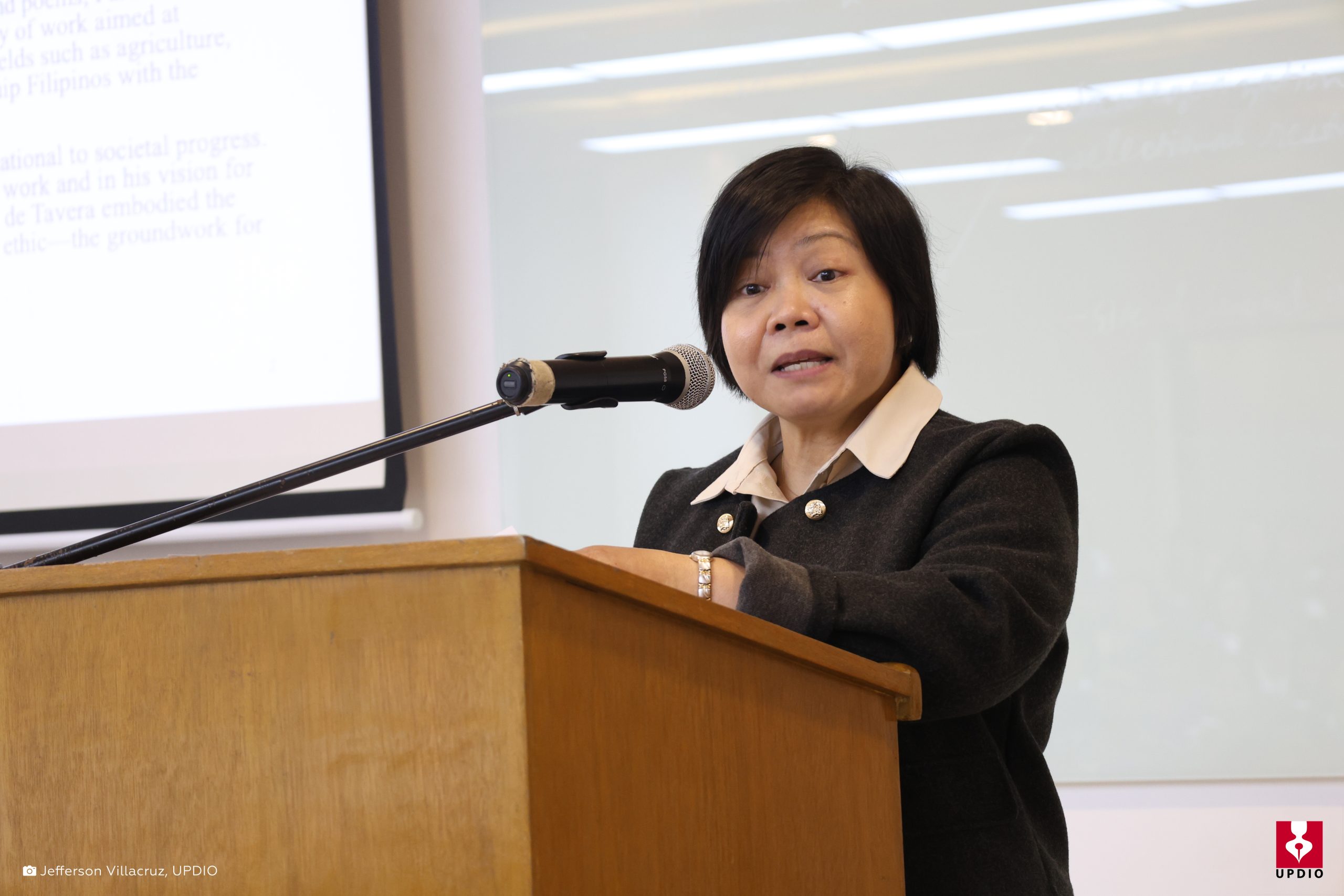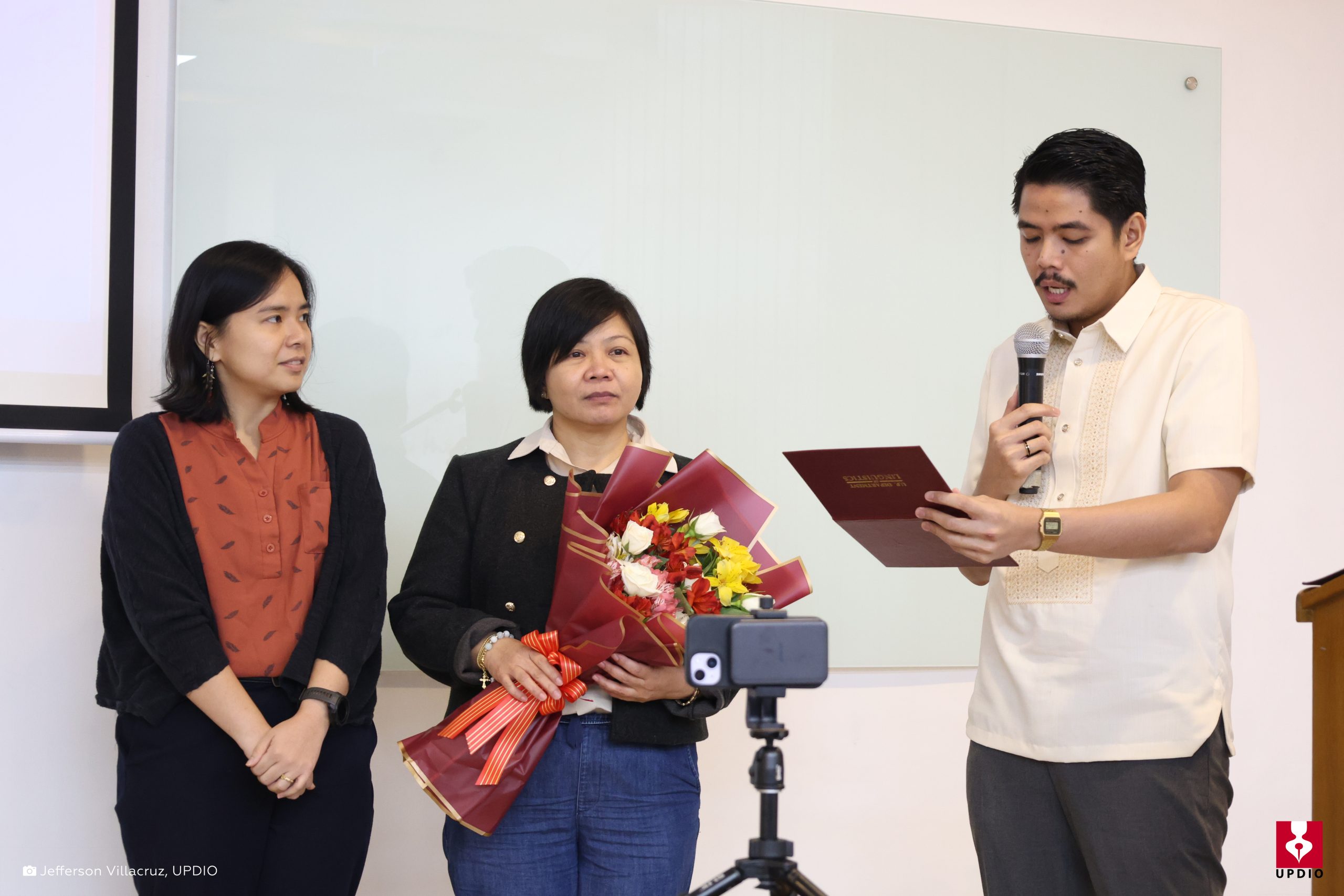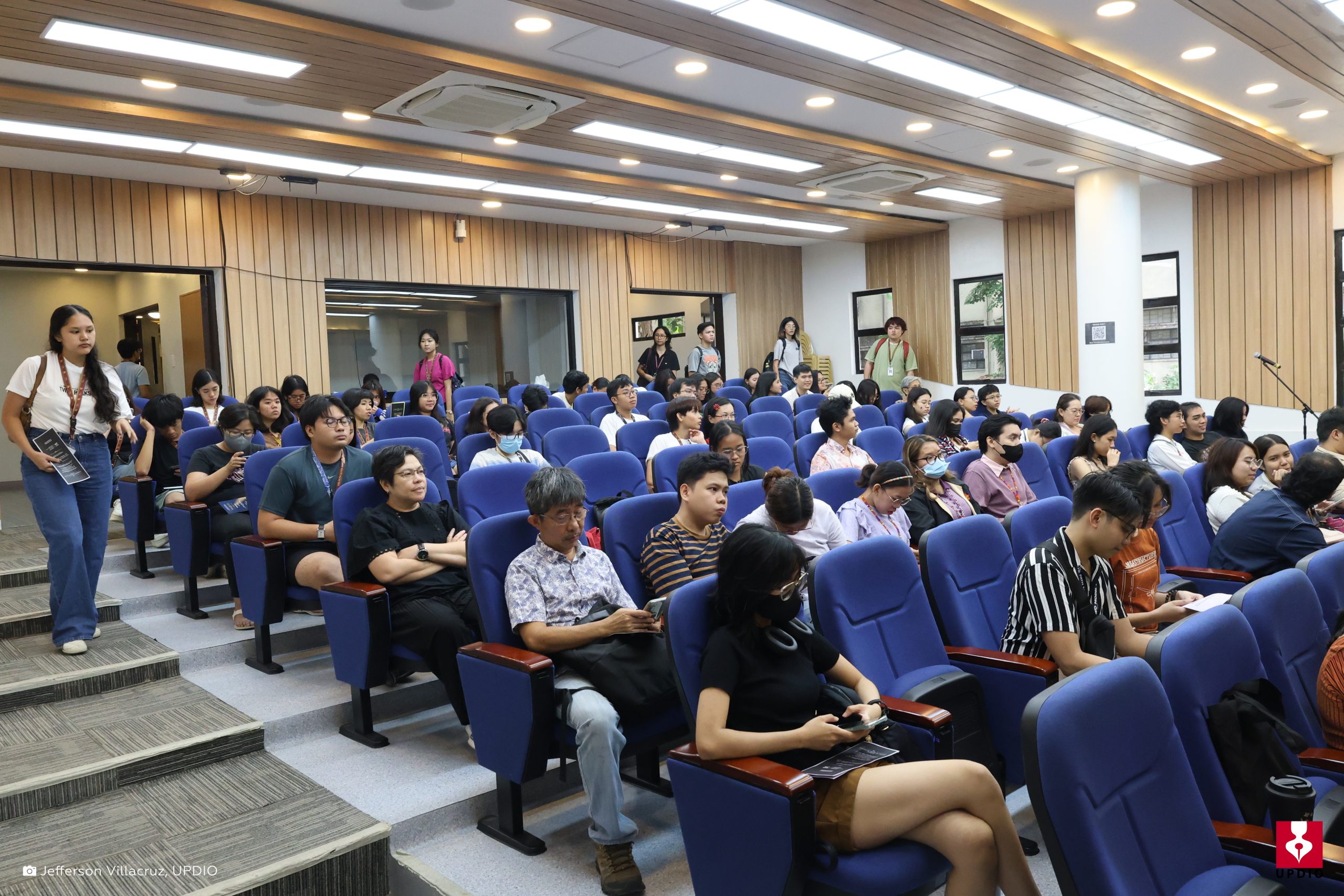For a man known for his controversial and maligned reputation in Philippine history, Trinidad H. Pardo de Tavera remained committed to the betterment of the Filipino people.
This was asserted by Maria Mercedes G. Planta, PhD, a professor of history at the UP Diliman Department of History, during her lecture All for the Philippines: Education, Knowledge, and Labor in Trinidad H. Pardo de Tavera’s Vision of Self-Determination and a Stronger Filipino Nation.
Planta highlighted Pardo de Tavera’s vision for the Philippines as one that combined intellectual rigor and a strong work ethic, rooted in a profound belief in the potential of the Filipino people.

“It was about creating a Filipino nation that could stand on its own intellectually, economically, and politically,” Planta said.
Pardo worked on building a body of work that Filipinos could draw upon to advance themselves and prepare for independence. Among his notable contributions was the Biblioteca Filipina.
“Biblioteca Filipina contains 2,850 entries of history, ethnography, linguistics, botany, zoology, history of publishing and bibliography in the Philippines,” Planta explained. “He was one of the figures who established a corpus of knowledge to his collection of books on the Philippines when Filipiniana as we know it today was still in its infancy. Perhaps, not even on the minds of everyone to study the Philippines,” she said.
Even today, Pardo de Tavera’s works remain valuable. One of his works was his commentary on the Pedro Murillo Velardo Map, a map significant to current events over the West Philippine Sea [South China Sea].
According to Planta, Pardo de Tavera’s controversial reputation stems from his pro-American stance during their early years in the country, as well as from his straightforwardness.
“When the Americans came, he saw the possibility that perhaps there was a way to liberate the Filipinos. This was the context of his support of the American rule,” Planta said. “For him, the Spanish government led to centuries of ignorance. So when the Americans came, there was hope for a better nation. This was the platform of all his views of the American rule in the country,” she added.
Pardo de Tavera’s involvement in the Philippine Commission marked a significant shift from previous colonial administrations, as it was the first instance in Southeast Asia where subjects were included in a governing body.
Planta explained that Pardo de Tavera believed the Americans would only stay for a spell, “a period of tutelage” to impart democracy and the ideals of rationality.
As Pardo de Tavera reasoned, “I have not accepted American sovereignty for the pleasure of being under the domination of a foreign nation, but because I thought that such was necessary to educate us in self-government.”
She said that Pardo de Tavera embraced the concept of the Americans’ “benevolent assimilation”, though she remarked, “perhaps, Pardo de Tavera was naïve.”
By the first decade of the 20th century, Pardo de Tavera became disillusioned with American rule due to issues of corruption and human rights violations that cropped up. This disillusionment led him to resign in all of his positions in the government.
“Pardo de Tavera was only 67 when he passed away. Had he lived longer, he would have been America’s first and most formidable critic,” Planta said.
For Planta, Pardo de Tavera was a nuanced and multifaceted figure—a man who had the Filipino nation’s benefit in mind, “not to abstract ideals but to a practical and grounded approach to education, labor, and nation-building.” He meticulously built a collection of writings that Filipinos could draw knowledge from.
“Of all Filipinos, I am the most Filipino. All my writings are for the interest, improvement, and progress of the Filipino people. They are writings that should not be of any interest to the French, German, Japanese, or any foreigners,” Pardo de Tavera said.
Planta urged the lecture participants, particularly the students of history, to critically assess Pardo de Tavera and his legacy.
“Today, when students of history talk about the Philippines, they would say the standard knowledge is that texts on the Philippines are not always about the Philippines. If you look and read Pardo de Tavera in 1903, he already articulated that… When I read [the] texts, I made my own discovery of Pardo de Tavera. [For] students of history, these are the texts that we use that through diligence, industry, hard work, and focus, we will realize that the knowledge that are being taught to us today are pieces of knowledge that are rooted in a stronger historical foundation and built on a scholarship of one of the most important, foremost intellectual of the 19th and 20th century Philippines,” Planta said.
Planta is the current chair of the History and Geography Section of the National Research Council of the Philippines.

Her lecture was part of the Trinidad H. Pardo de Tavera Lectures of the UPD Department of Linguistics (DLing) on March 26 at the Pilar Herrera Hall, Palma Hall, in commemoration of Pardo de Tavera’s 100th death anniversary. Pardo de Tavera was the founding chair of the UP Department of Oriental Languages, DLing’s precursor. Planta was presented with a certificate by DLing Chair Maria Kristina S. Gallego at the event.
DLing also announced the UP Press release of the revised edition of Planta’s book Traditional Medicine in the Colonial Philippines on the day of the lecture. The book, which won the Best Book in Science in the 37th National Book Awards of the Philippines in 2018, continues to be recognized for its significant contribution to Philippine scholarship.

